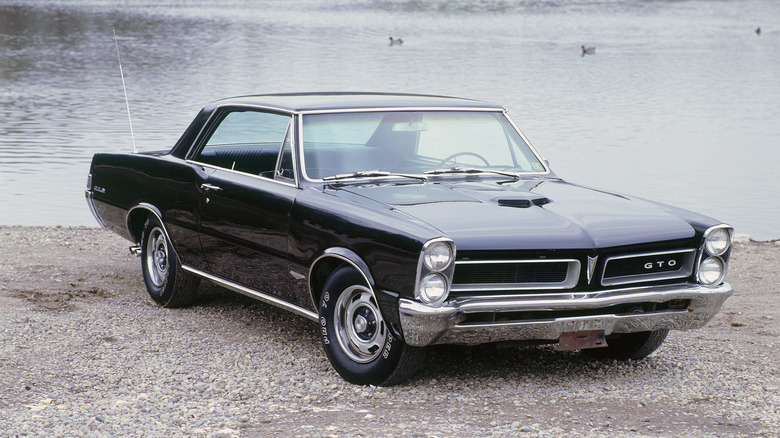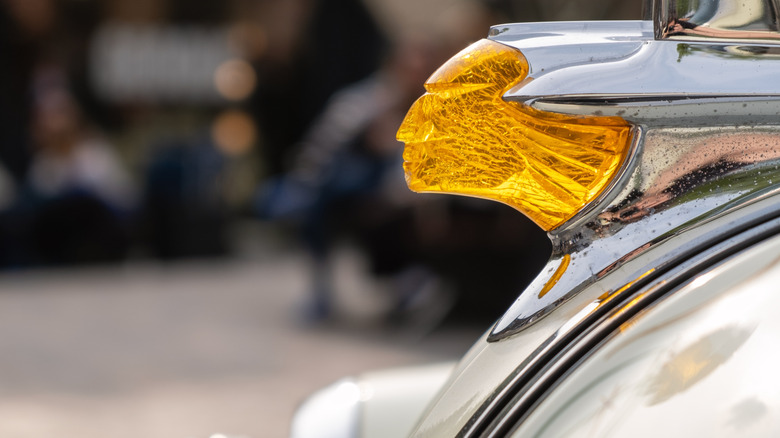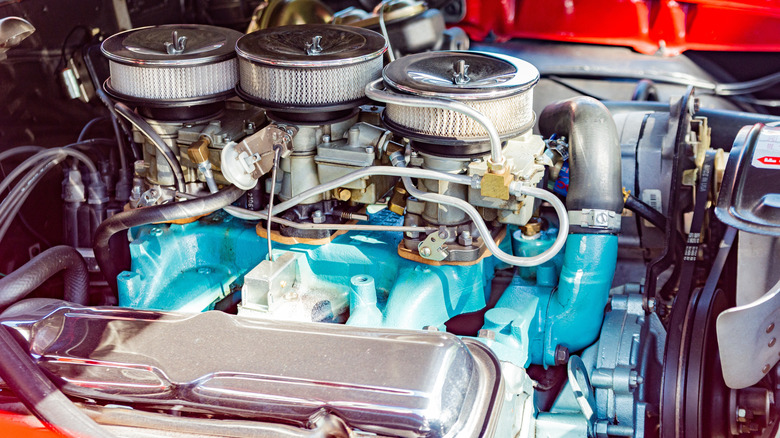Why Are Pontiacs Called 'Ponchos'?
Compared to modern times, the major American automakers not only had a lot more brands than they do today, but some pretty diverse personalities among those brands. Consider the 1960s, for example. Sure, Buick, Cadillac, Chevrolet, Oldsmobile, and Pontiac were all owned by General Motors, and used shared GM platforms for their underpinnings. However, the brands were more than just names, they each had their own unique engines, distinct engineering teams, and marketing departments.
The result was that despite being from the same corporate parent company, these brands had their own distinct identities, and thus their own nicknames. In the case of Pontiac, maker of some of the most iconic muscle cars of all time, its cars have long been known colloquially as Ponchos, and it's not just in casual conversation that the word Poncho comes up. A number of Pontiac race cars have used the term in their names, including Arnie Beswick's Passionate Poncho Pontiac Catalina NHRA machine.
So, exactly how did Pontiacs come to be known as Ponchos? While there's no official record, nor did Pontiac ever use the word Poncho in marketing, the nickname likely comes from possibly two things. First, there's Pontiac's namesake and long-running brand association with American Indian iconography. Second, the simple fact that Poncho could be used as a truncated, informal way to say Pontiac.
Pontiac: What's in a name?
Pontiac's association with American Indian iconography is well-established. The brand itself, as well as the city in Michigan where its headquarters were located, were named after Chief Pontiac, the Ottawa chief who,in the 1760s, gathered a number of Indian tribes across what's now the American Midwest to fight against the British.
During the first few decades of its existence, the Pontiac brand leaned heavily on American Indian iconography for its vehicles. The American Indian also had a prominent role in the history and meaning behind Pontiac's logo. Additionally, the brand had hood ornaments that were styled after Indians, and gave its cars names like Chieftain and Star Chief.
Poncho also happens to be the Spanish word for the outer garment that originated among indigenous tribes in South America and made its way north, where they were worn by American Indians in certain regions. In popular culture, the Poncho has long been associated with images of American Indians, Mexico, and the Southwest, though it's unclear how much this specific cultural connection had to do with Pontiac cars being called Ponchos.
Poncho power forever
What is more certain is that Poncho is just a quicker, easier, and less formal way to say Pontiac. In the 1950s and 1960s, Pontiac began to earn a strong reputation for performance, and the term Poncho began to be used by owners, fans, and racers to refer to Pontiac cars, especially during the horsepower-crazed 1960s.
Speaking of horsepower, though modern Pontiacs all used the same corporate GM engines, Pontiac built its own powerplants for a long time. During its prime, Pontiac was responsible for some of the most powerful engines of the muscle car era. Within the hot rod, custom, and drag racing scenes the Poncho name was also commonly used when referring to Pontiac engines that had been swapped into other cars — for example, a Poncho-powered Model A.
As the 1970s began, with Pontiac becoming known for cars like GTO and Trans Am, the old American Indian branding was largely left behind. In the '80s and '90s, as Pontiacs became less distinguishable from other GM products, both mechanically and stylistically, the Poncho nickname started to lose a bit of its relevance. Eventually, the Pontiac brand itself would end up being shut down in 2010. Today, even with Pontiac's demise well in t he rear-view mirror, the Poncho name is still used endearingly by old school hot rodders, classic car enthusiasts, and fans of this once mighty American brand.


